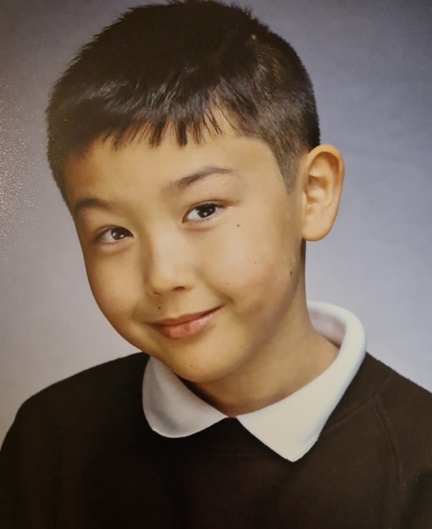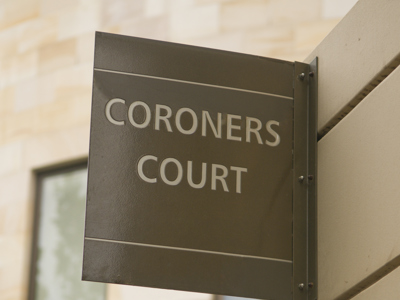
Coroner concludes 10-year-old boy died as a result of multiple failings by healthcare professionals, amounting to neglect
Multiple failings by healthcare professionals to recognise and adequately treat William Gray’s asthma caused the death of the 10-year-old, an inquest has concluded.
Posted on 22 November 2023
Sonia Hayes, area coroner for Essex, added that neglect by healthcare professionals contributed to William’s death.
William, from Southend, died on 29 May 2021 died from a cardiac arrest caused by respiratory arrest resulting from acute and severe asthma that was chronically very under controlled. He had previously suffered a nearly fatal asthma attack on 27 October 2020 which he survived.

Image of William Gray
The court heard that William’s death was a “tragedy foretold” with the coroner adding that William’s death was avoidable, his symptoms were treatable, and he should not have needed to use 16 reliever inhalers over 17 months, but instead his condition should have been treated with preventer medications and should have been controlled. She said: “William was lost to follow up and this should not have happened.”
In October 2020 William was “as near to death as possible without dying”. At this time, he was discharged after just four hours and the severity of the incident was not correctly recorded. The coroner said that he should not have been discarded from and there should have been more professional interest and consideration given.
The Coroner found that Article 2, William’s right to life, was engaged as she found the State did not have an appropriate system in place to protect and safeguard the lives of children with asthma at the time. She heard evidence that NHS England has recognised deficiencies in asthma care for children and, while there is an intention to reduce avoidable harm as a result, it was not in place at the time William died.
The following failures amounted to neglect:
- William’s GP, Queensway Surgery, failure to conduct annual asthma reviews, carry out medication reviews, to recognise an absence of preventer inhalers despite repeated requests for other medication or referral to secondary care;
- William’s discharge from Southend Hospital after four hours in the early morning of 27 October 2020, failing to recognise the seriousness of his condition or to follow the British Thoracic Guidelines or to change any of his medication;
- The lack of proper recording of William’s life threatening asthma attack in October 2020 in his medical records which was a key factor in the lack of understanding that other healthcare professionals relied on after that;
- The lack of recognition of the seriousness of his condition on 14 November 2020 by Southend hospital, failing to provide sufficient medication and preventative assessment and a referral on to the Royal Brompton;
- The lack of follow up by Southend Hospital after 14 November 2020;
- The lack of sufficiently trained asthma nurses;
- That the asthma nurses did not follow British Thoracic Guidelines and that the telephone calls lasted a matter of minutes, were not meaningful and did not ask the most rudimentary questions;
- That the asthma nurses did not follow up between 1 February 2021 and 21 May 2021;
- A Practice Nurse at Queensway Surgery not escalating William’s symptoms on 25 May 2021 to one of the GPs.
On the night of William’s death, his mum, Christine Hui, made two 999 calls. The coroner said that, at the time of the first call, it is likely that William was having a severe asthma attack, and a category one ambulance should have been dispatched.
She said that, when the paramedics arrived on the scene, adrenaline was not administered and, on the balance of probabilities, this would have affected the outcome in this case.
The coroner will be writing three Prevention of Future Deaths reports. They will be sent to:
- The East of England Ambulance Service about improving training for treating children suffering a life-threatening asthma attack.
- Asthma and allergy services at Essex Partnership University NHS Trust
- The Joint Royal Colleges Ambulance Liaison Committee to ensure the guidance for paramedics treating children with life threatening asthma nationwide is clear.
The inquest into William’s death took place over two weeks in October 2023. The scope of the inquest included the community care and treatment of William’s asthma after 27 October 2020 and the emergency response on 28/29 May 2021. The coroner heard evidence from:
- William’s GP and practice nurse at Queensway Surgery, Southend;
- the asthma nurses from Essex Partnership University NHS Foundation Trust;
- paediatric doctors from Southend Hospital, part of Mid and South Essex NHS Foundation Trust;
- paramedics from East of England Ambulance Trust;
- a paramedic expert and an expert Consultant in paediatric asthma.
On the night of his death, William collapsed soon after paramedics arrived. During the 10-day inquest, the court heard that the paramedics put William on the floor, and tried to get an airway and back-up paramedics were called.
In a statement read to the court, Christine said: “It was chaotic, but at the same time there was no real urgency about getting William to hospital.”
When William arrived at hospital doctors tried to revive William, but his family was told that his heart had stopped working and a decision was made to stop CPR.
William’s family had been concerned about his worsening condition since the previous October when he was admitted to hospital after a life-threatening asthma attack when Christine had to do CPA at home.
After a home visit from an asthma nurse nine days later, William’s inhaler was changed, and he was prescribed steroids. He was referred to a paediatrician at Southend hospital who arranged investigations and advised he should have a follow up appointment in three months. No further appointment was arranged at Southend Hospital before William died.
In spring 2021, when William's asthma began to get worse again, his mum spoke to his GP, the asthma nurse and the GP practice nurse but his medication was not changed, and he was not referred for any further care.
Prior to October 2020, William’s asthma was generally well controlled, and he hadn’t been admitted to hospital for any asthma attacks in the previous three years. He had been diagnosed with asthma when he was between two and two and a half years old. Aside from asthma and eczema, which is commonly linked with asthma, William was a happy and healthy child.

William’s mum, Christine Hui, said:
“William was a funny, caring little boy who liked to make jokes and had a heart of gold. He was adored by his friends. He had dreams of working in medicine as a doctor or a paramedic because he saw the care he was given, and he wanted to do that for others. Today is bittersweet because, while the coroner’s conclusion gives us some closure, this is the final stage in saying goodbye to our son, brother, grandson, great grandson, nephew and friend.
“We believed that William’s asthma was controlled, but now we know that wasn’t the case. Parents know their children best and should trust their instincts. If you feel something isn’t right, question it. There is nothing that can take away the grief our family feels, but it is our hope that another family will hear our story and it could prevent a further tragedy.”
William’s family are represented by solicitor Julie Struthers, at law firm Leigh Day and barrister Emily Slocombe from Old Square Chambers.
Julie Struthers, a solicitor at Leigh Day, said:
“In an inquest involving concerns with medical treatment it is rare for a coroner to find neglect, and even rarer for a coroner to find Article 2, a person’s right to life, to be engaged. This reflects the real tragedy of what happened to William, the substantial number of failures by multiple healthcare professionals in his care, and the importance of improving asthma treatment for children nationwide.”




